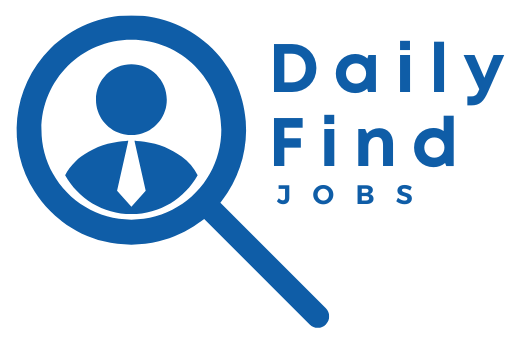Eager to enhance your career while maintaining well-being? Setting goals can be a transformative approach. By establishing clear and actionable objectives, you ensure growth in a healthier manner. Dive into the significance of career health, discover how to set SMART goals, and learn to balance work and personal life effectively. Let’s explore the steps to monitor progress and adapt goals for ongoing development.
The Importance of Career Health
Career health is a fundamental aspect of an individual’s overall well-being and success. Ensuring your career remains vibrant and rewarding requires consistent attention, much like physical health. Neglecting this could lead to burnout or stagnation.
Understanding Career Health involves evaluating your current job satisfaction, skill development, and work-life balance. This is essential for preventing career fatigue and ensuring long-term professional fulfillment.
A career lacking health might result in missed opportunities, reduced motivation, and a lack of growth. It’s crucial to assess if your current career path truly aligns with your personal and professional aspirations.
Regularly setting and assessing career goals is part of maintaining career health. These goals should challenge you, keep you engaged, and help you advance in your field.
Evaluating Satisfaction Levels can help determine if your career is on a healthy track. Reflect on whether your job aligns with your values and if it provides the stimulation and fulfillment you need.
Investing in continuous learning and skill improvement is another way to boost your career’s health. This not only enhances your capabilities but also increases job satisfaction and opens new doors of opportunity.
Remember that a successful career is not just about climbing the corporate ladder. It’s about achieving a
balanced
approach where personal goals and career objectives harmoniously coexist, ensuring long-term satisfaction and reduced stress.
How to Set SMART Goals
Understanding SMART Goals
Setting SMART goals is crucial for career growth and success. SMART is an acronym that stands for Specific, Measurable, Achievable, Relevant, and Time-bound. Each component plays a significant role in creating goals that are clear and reachable.
Specific: To set effective goals, start by being as specific as possible. For instance, instead of aiming to “improve skills,” aim to “complete an advanced course in communication by the end of the third quarter.” This clarity helps focus efforts and design tasks that align precisely with what you want to achieve.
Measurable: A measurable goal means you can track progress and know when you’ve accomplished what you set out to do. Use criteria such as completion dates, quantity attained, or qualitative improvements. An example might be “increase sales by 10% in the next six months.”
Achievable: Ensure your goal is attainable given your current resources and constraints. It’s important to stretch your abilities but remain realistic about what is possible. If necessary, break larger goals into smaller, more manageable tasks.
Relevant: Set goals that matter to your broader career objectives. Ask yourself if this goal aligns with other plans, and whether it holds significant value. This ensures your efforts contribute to your overall career health and development.
Time-bound: Every goal should have a clear deadline. This helps concentrate efforts towards achieving the milestone within a defined period. Deadlines create a sense of urgency, encouraging continuous progress.
When you create SMART goals, you’re not only organizing your objectives better, but you’re also paving a clearer path to achieve your career ambitions effectively.
Balancing Work and Personal Life
Balancing work and personal life can seem daunting, but it’s a cornerstone of achieving a healthier career. To maintain a healthy balance, it’s crucial to establish clear boundaries and priorities. Prioritizing tasks ensures that urgent work doesn’t overshadow personal needs.
Leveraging effective time management skills helps in allocating dedicated periods for both work and leisure. Tools like calendars and task lists can be invaluable in this endeavor, allowing for a better overview of daily responsibilities and personal commitments.
Including small breaks throughout the day can reduce stress and improve focus. This practice helps maintain energy levels and encourages a refreshing mindset when switching between professional and personal spheres.
Cultivating support systems, both at work and home, enhances the ability to manage diverse demands. Open communication with colleagues and family about goals and limits plays a crucial role in achieving balance.
Ultimately, maintaining a flexible approach is key, as life often presents unexpected challenges. Being adaptable allows for smoother transitions when balancing these two important areas of life.
Tracking Your Progress Effectively
To achieve a healthier career, it’s crucial to track your progress effectively. This helps you understand how well you’re moving towards your goals and where adjustments might be needed. Use different tools and techniques to monitor progress. Regular reviews can offer insights into your performance. Keep a journal or a digital tracker to record your accomplishments and challenges daily. Look for patterns in your productivity to identify habits that help or hinder your progress.
Setting milestones is another effective method. Break down your main goal into smaller, achievable targets. Each milestone reached is an opportunity to celebrate, reinforcing motivation and providing clarity on your path. Schedule monthly or quarterly check-ins to reflect on your journey, making sure your career remains aligned with your personal and professional aspirations.
Incorporating feedback from peers or mentors is invaluable. They can provide an external perspective, helping you see your progress in a broader context. Be open to constructive criticism and use it to make informed adjustments. This continuous loop of assessment and improvement is key for sustained career health and success.
Adapting Goals for Continued Growth
As you venture into making your career healthier, adapting goals is vital. It’s important to recognize that goals are not static. Review regularly. It ensures that you stay aligned with your long-term career objectives. If your current goals no longer push you towards growth, it’s time to reassess and readjust.
Begin by evaluating your achievements. Identify the areas where you excelled and those where you need improvement. Reflecting on your journey helps you understand what needs change. By adapting your goals, you maintain enthusiasm and motivation.
Moreover, embrace flexibility. The professional landscape is ever-evolving, and your goals need to match this dynamism. Consider the skills and competencies that are in demand. Are there new technologies or methodologies you should explore? This approach will enhance your capacity to grow continuously.
Finally, seek feedback. Engaging with mentors and peers can provide you with invaluable insights. They may see potential or challenges you might have missed. Open discussions can lead to new goal formulations that are better suited to your desired career path.

